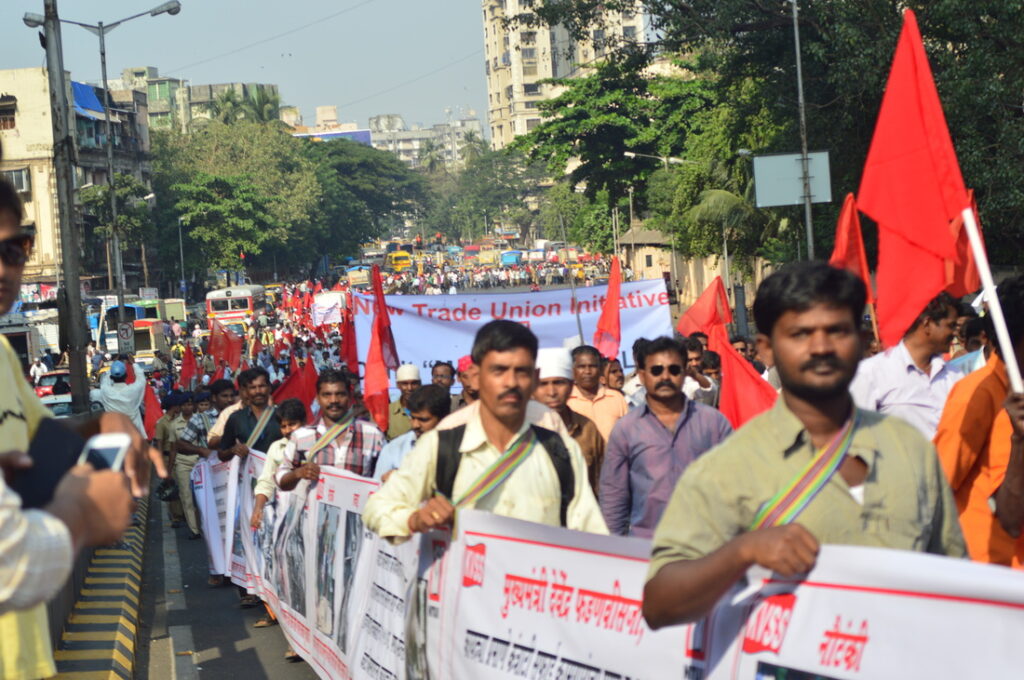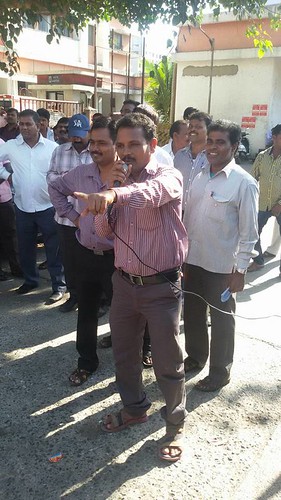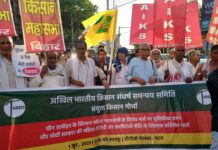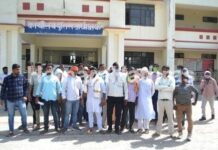In a major boost to the sanitation workers’ 25 year long struggle for dignity of labour, a 162 page judgement today by the Industrial Court, Maharashtra has directed the Municipal Corporation Greater Mumbai (MCJM) to “make all the [580] employees (deemed as volunteers) permanent and extend them the benefits and status of permanent workers retrospectively”. 580 sanitation workers, who were forced to work as “volunteers” for the MCGM have now been declared permanent workers by the Industrial Court. This is the third such victory for the workers of Kachra Vahtuk Shramik Sangh (KVSS). Similar struggles by KVSS had won permanency for 1240 workers in 2006 and 2700 workers in 2017. 54 of the 580 workers are no more today.
The origins of this struggle lie in the casteist employment practices of the MCGM. In 1996, on the eve of the 50th anniversary of Independence, a large number of sanitation workers were hired to make Mumbai “clean and green”. However, in order to keep them out of the purview of labour laws, they were not called “workers” but “volunteers”. They were not paid a salary but an “honorarium” and were shown to be employed through a web of dubious “NGOs” and “Cooperative Societies”. They performed the same work as permanent employees and were not given any proof of attendance or employment. They were made to work 10 hours a day, 365 days a year for wages around ₹55/day, when the minimum wage was fixed at ₹127/day.

Working with no protective gear caused many injuries and made them ill. They were not allowed to enter buses or hotels, thus reinforcing the indignities they already faced on account of their caste. They would wash their hands and faces in the one bottle of drinking water they brought, sit in the shade of their garbage trolleys and eat their tiffins. The threat of being dismissed was constantly looming. Ultimately many of them organised and the Kachra Vahtuk Shramik Sangh (KVSS) came to be.
Five hundred and eighty workers then approached the court in 1999 and demanded to be recognized as permanent employees. Simultaneously they started a campaign for minimum wages, drinking water, safety gear and other basic rights and amenities. Slowly, union expanded its strength, growing from 580 to 8000 workers. An unrelenting struggle of 25 years has now ensured that every union worker, who would previously be paid ₹55 / day now earns ₹662 / day and receives their customary bonus, 21 day paid leave, weekly off, gratuity, is covered under health insurance and much more.
The Industrial Court through its order has conceded that this contract system in sanitation work is merely a smokescreen meant to disguise the true nature of employment and allow the MCGM to avoid paying equal wages and other legitimate dues.
The testimonies of workers Dadarao Patekar and Vijay Bhivsane proved crucial to clinching the case. They proved that the corporation’s control over the workers was all encompassing – right from appointment to increasing wages, planning of work, supervision, taking disciplinary action – and showed beyond doubt that an employer-employee relationship existed between the workers and the MCGM. The system has been revealed to be anti-poor, anti-Dalit and anti-worker and that it is completely illegal, despite several dishonest attempts to assert the contrary by MCGM through senior advocate R. N. Shah, who claimed in court that the corporation bore no responsibility for these “volunteers”.

A crucial witness examined during this case was MCGM Junior Overseer Kiran Waghela, whose testimony revealed the direct employer-employee relationship between the MCGM and the workers. Mr. Waghela’s testimony ended at 4 pm and he was suspended by the municipality the same day at 4:30 pm. After 25 months of legal battle, during which he was not even paid his suspension allowance, the High Court acquitted Mr. Waghela and fined the corporation Rs. 15,000 for its arbitrary actions and ordered it to re-employ Mr. Waghela and pay him full salary for the period of suspension. The municipality took three months to hire Mr. Waghela and is yet to pay him his arrears.
This verdict has been obtained in the midst of rampant privatization and contractualization and an unprecedented assault on labour rights. It is a testament to the strength and tenacity of the workers’ struggle in the country. The MCGM has appealed against similar orders on two previous occasions, only to lose.
President Deepak Bhalerao was an important leader in KVSS’s struggle along the legal front and provided crucial guidance to allow the union to build a militant campaign based on the legal victories. He was assisted by advocate R. D. Bhat.
This article was initallly a statement from the Kachra Vahtuk Shramik Sangh.
Read: A Decade of Maruti Workers’ Movement: The Lesson is to Carry Forward the Gains






























